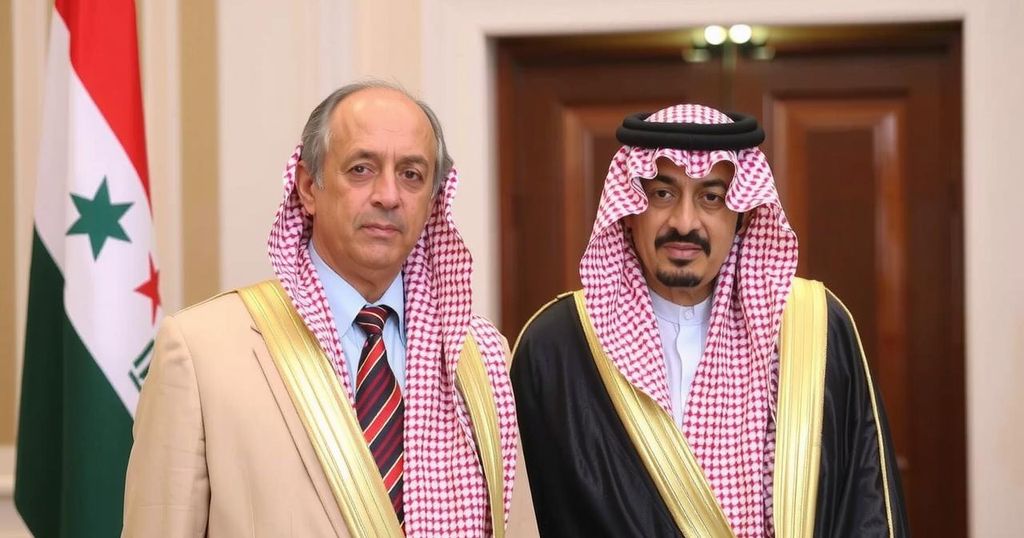Syria’s new Foreign Minister, Asaad al-Shaibani, embarked on his first official visit to the UAE after the ousting of President Bashar al-Assad. His visit aims to establish constructive bilateral relations, though the UAE remains cautious due to concerns about the new administration’s Islamist ties and potential Turkish influence.
Syria’s new Foreign Minister, Asaad al-Shaibani, has commenced his first visit to the United Arab Emirates following the ousting of President Bashar al-Assad last month by Islamist-led rebels, as reported by the state news agency SANA. Accompanied by Defense Minister Murhaf Abu Qasra and Intelligence Chief Anas Khattab, shaibani expressed his eagerness to cultivate positive bilateral relations. His arrival follows visits to Qatar and Saudi Arabia, reflecting a broader diplomatic outreach by the new Syrian leadership after thirteen years of civil war.
Notably, the UAE expresses caution towards the new Syrian administration, wary of their Islamist connections and the influence of Turkey in the region. In contrast, both Qatar and Turkey have reopened their embassies in Damascus, indicating a shift in foreign policy dynamics post-Assad. Anwar Gargash, an adviser to the UAE’s presidency, previously articulated concerns regarding the Islamist affiliations of Syria’s new rulers, citing them as “quite worrying.”
The recent visit of Syria’s new Foreign Minister to the UAE marks a significant moment in the ongoing geopolitical shifts in the region post-civil war. Following the fall of Bashar al-Assad’s regime, the new leaders in Syria are attempting to establish diplomatic relationships with neighboring countries to foster stability. The UAE’s historically complex relationship with Syria and its evolving stance on political Islam contribute to the cautious reception of the new Syrian officials. This diplomatic endeavor comes amidst a broader backdrop of shifting allegiances in the Middle East, particularly as other nations like Qatar and Turkey have shown more readiness to engage with the new Syrian regime. The UAE’s hesitance underscores the nuanced positions different countries maintain regarding political Islam and foreign influence.
In summary, the arrival of Syria’s new foreign minister in the UAE represents a pivotal step in the country’s attempt to rebuild diplomatic channels post-civil war. However, the UAE’s apprehensions about the new regime illuminate the complexities of regional relationships influenced by ideological concerns and historical context. As Syria navigates this transitional phase, the responses from its neighboring states will play a crucial role in shaping its future trajectory in international relations.
Original Source: www.barrons.com






